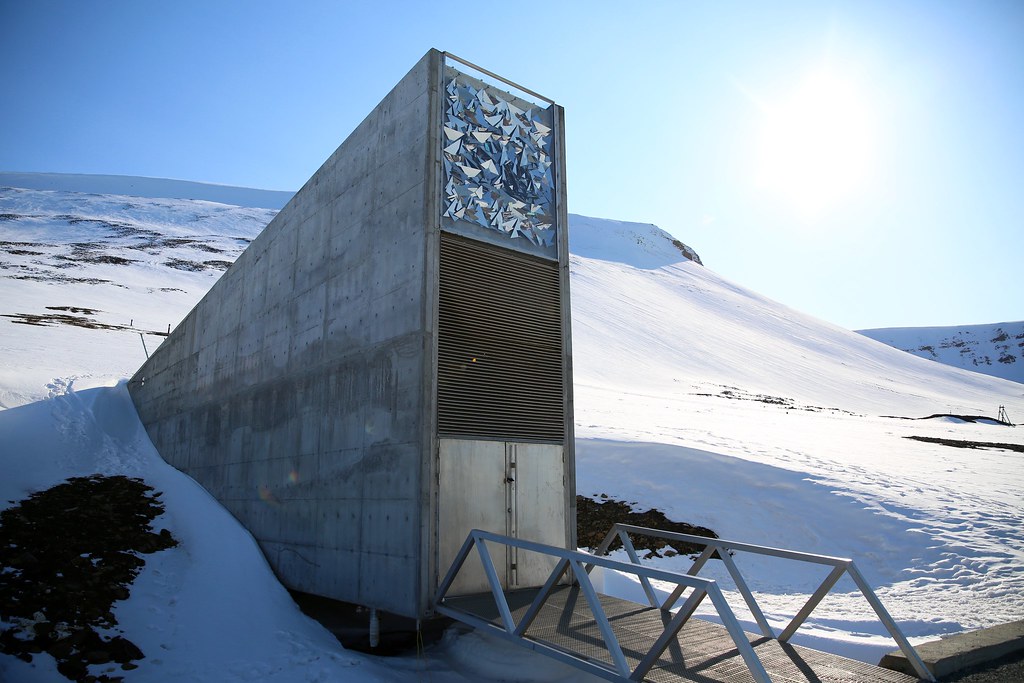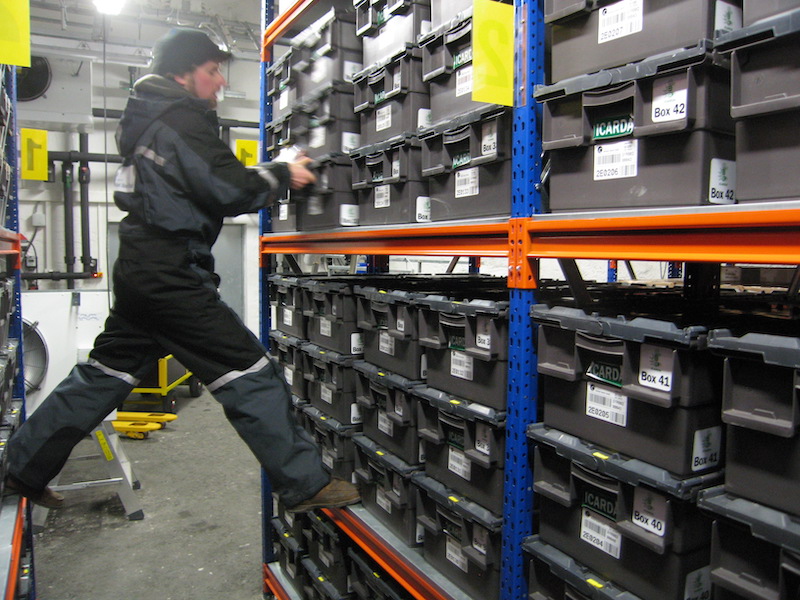
Norway’s Global Seed Vault reopens for first deposit of 2021
The Svalbard Global Seed Vault, located on the Norwegian island of Spitsbergen, has reopened for the first deposit of 2021.
Sometimes referred to as a “doomsday vault”, it is a long-term seed storage facility with the capacity to store almost 5 million different seed samples from all over the world.
When construction began in 2006, the concept behind the seed vault was to ensure that Earth’s plant life can be replenished in the event of natural or manmade catastrophe.
Among the first deposits of 2021 are seeds of watermelon, strawberry and pumpkin, coinciding with the United Nations’ Food and Agriculture Organization’s International Year of Fruits and Vegetables. This deposit includes the seeds of many other crops from genebanks in Africa, Europe and South Asia.
Fruits and vegetables may not come to mind when picturing the frozen, barren landscape surrounding the Svalbard Global Seed Vault, within the Arctic Circle, but that’s where their seeds will be deposited for long-term safekeeping this week.

The Seed Vault is described as “humanity’s largest crop diversity collection”, and one that is designed to endure the effects of time.
In total, five genebanks are depositing almost 6,500 seed samples at the Seed Vault:
- AfricaRice in Côte d’Ivoire;
- ICRISAT in India;
- the Julius Kühn-Institute (JKI) in Germany;
- SADC Plant Genetic Resources Centre in Zambia; and
- the National Genebank in Mali.
The Seed Vault safeguards more than 1 million seed samples in total, deposited by almost 90 genebanks over the past 13 years.
This deposit will mark a notable first: JKI’s seeds will be deposited into the same box as last year to save space for future shipments. New features in the updated database system, The Seed Portal, make this possible.
The Seed Vault was opened in 2008 as a backup for genebanks around the world to conserve duplicates of their crop diversity.
In a worst-case scenario, if a genebank collection is destroyed or becomes inaccessible due to wars or extreme weather events, or if its collection is damaged due to a lack of sufficient funding or accident, the duplicate seeds will still be available for the depositor to retrieve from the Seed Vault and start anew.
Despite the ongoing pandemic, the Seed Vault is scheduled to open twice more this year, in May and in October.
Stefan Schmitz, executive director of the Crop Trust, the organizational name for the vault, says: “The Svalbard Global Seed Vault protects the work and heritage of generations of farmers going back more than 10,000 years and contains the crop diversity to adapt our agriculture to the changing climate.
“We are losing the earth’s biodiversity at an accelerating rate. Conserving our crop diversity and making it available for use is a prerequisite for future food security and better food systems. As a backup to genebanks, the Seed Vault plays an essential role in food and nutrition security.
Schmitz adds: “Covid-19 is putting increased pressure on genebanks around the world, however, these institutions were still able to deposit their seeds for safeguarding, a testament to the resilience and importance of multilateral cooperation.
“Amidst this great upheaval are signs that positive change is still possible and that the global community can continue to work together to solve urgent crises.”
Lise Lykke Steffensen, executive manager of the Nordic Genetic Resource Center, one of the organizations that helped set up the vault, says: “As we travel to Svalbard this week to deposit seeds sent from genebanks located in three different continents, the mission of the Svalbard Global Seed Vault and the world’s genebanks has never been more important.
“In a time of climate change, unprecedented loss of biodiversity and a global pandemic, we are humbly grateful for the trust these genebanks show us. Their seed samples are invaluable and a prerequisite for our future food security. It is our honor to put them on the frozen shelves of the Seed Vault for safe, free-of-charge and long-term storage.”
Olaug Bollestad, Norwegian Minister for Agriculture and Food, says: “We welcome the deposits of new seeds of fruits, vegetables and other important food crops to the Seed Vault.
“This diversity contributes to nutritious food and constitutes the building blocks for adapting food production to climate change. This deposit is thus a small, but significant step on our pathway to reach the Sustainable Development Goals.”
